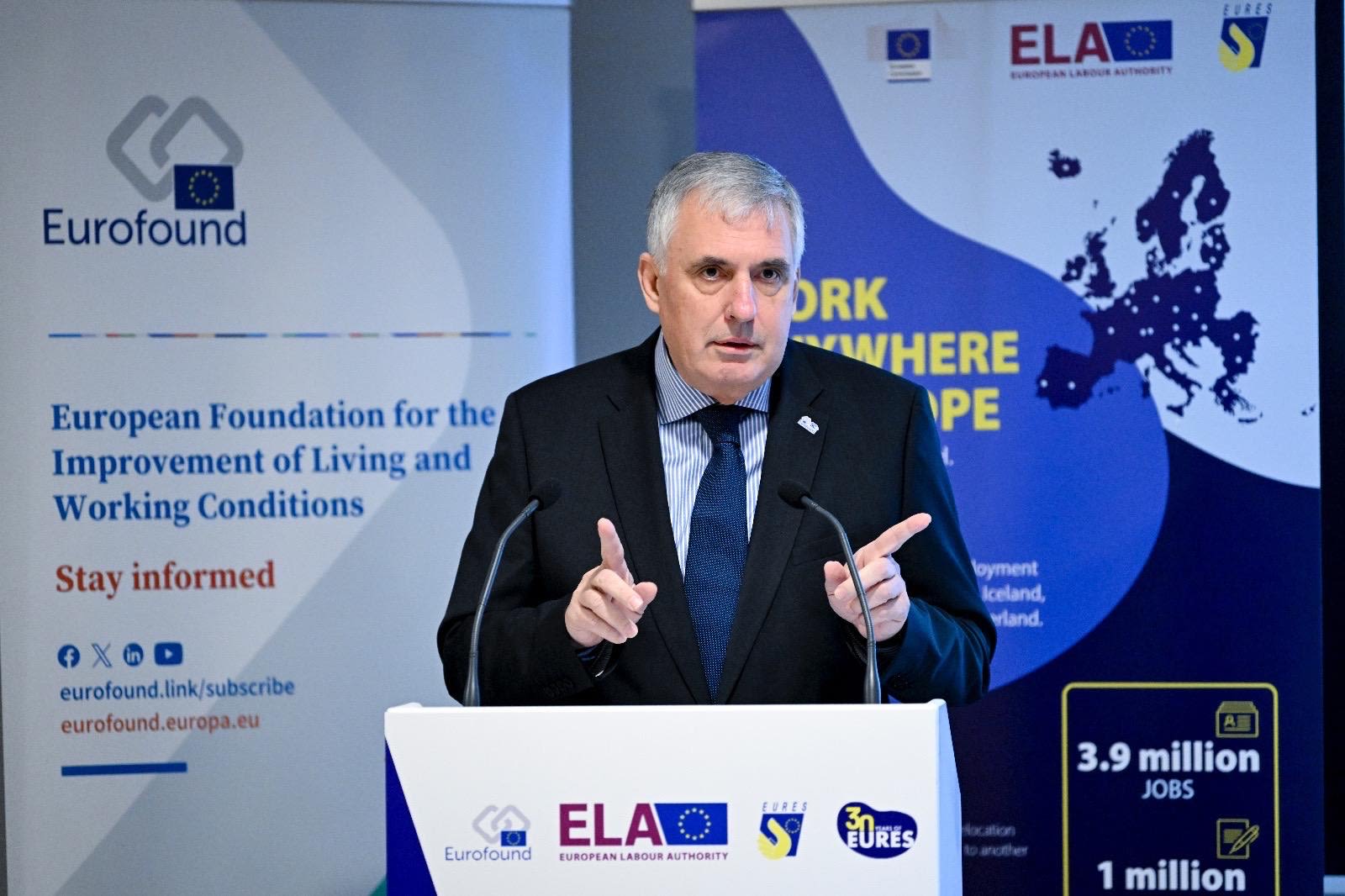Chapter 2:
Missing skills, lost opportunities
Workforce crisis hitting Europe

The European Year of Skills extended into 2024, reinforcing the EU’s push for reskilling and upskilling to help businesses – especially SMEs – address skills shortages. The European Commission’s 2024 action plan on skills and labour shortages, drawing on data from Eurofound’s European Company Survey (ECS), highlights that many employers perceive new recruits as lacking the necessary skills required to perform their jobs.
These concerns highlight what many companies see as a persistent mismatch between workforce skills and labour market needs across the EU.
As the green and digital transitions accelerate, skills shortages are set to worsen, particularly in construction and ICT. Addressing these gaps means improving access to high-quality training, including on-the-job learning, continuously monitoring emerging skill requirements, and integrating this knowledge into education and training curricula.

Widespread skills shortages

Skills shortages are not a new phenomenon, and they continue to affect a large share of employers across the EU. Findings from Eurofound’s most recent ECS in 2019, referenced in the European Commission’s 2024 action plan on skills and labour shortages, reveal that 77% of employers in the EU reported experiencing skills shortages, with over a quarter finding it very difficult to hire workers with the right skills.
More recent evidence demonstrates that skills shortages are a persistent challenge for SMEs in particular. In 2023, 80% of surveyed SMEs reported difficulties finding workers with the right skills (Figure 7).
Figure 7: SMEs facing difficulties finding workers with the right skills, EU and Member States, 2023 (% of SMEs)
SMEs also reported significant impacts from these shortages. Almost two-thirds (64%) of SMEs stated that skills shortages impede their general business activities. Some 47% linked skills shortages with delaying the adoption or use of general technologies, and 39% linked them with holding back the greening of business activities (Figure 8). This is particularly concerning for the EU, as it affects SMEs’ ability to adopt new technologies and transition to greener business practices, which are key to the green and digital transitions.
Figure 8: SMEs’ perceived impacts of skills shortages, EU, 2023 (% of SMEs)
Recruitment challenges among SMEs are especially widespread in relation to professionals and machine operators. The main reason SMEs face challenges in these occupational groups is the lack of applicants.
Furthermore, around one in three SMEs in the EU face difficulties recruiting manual labourers due to the lack of applicants. Differences in the prevalence of recruitment challenges between sizes of SMEs tend to be pronounced only for professionals, with a larger share of medium-sized enterprises (40%) having such challenges. In contrast, recruitment difficulties for more generalist occupations such as managers and clerical and service workers tend to be less pronounced across size categories of SMEs.

Companies’ role in upskilling and reskilling

Access to high-quality initial and ongoing training is key to reducing skills shortages. Countries with many underskilled workers also tend to have fewer companies offering training to their employees (Figure 9).
In Greece and Romania, under a third of companies provided training in 2015, and participation had dropped further by 2020. During that period, the share of enterprises that provided training declined in all Member States except Italy and Portugal.
Geographical disparities in the provision of training persist, with most enterprises in northern and western Europe offering training to employees, while many southern and eastern European countries rank below the EU average. However, data for 2020 may have been affected by the pandemic’s impact on the ability to deliver training.
Figure 9: Companies providing training, EU and Member States, 2015 and 2020 (%)
Companies play a pivotal role in closing at least some of these skills gaps. Data from the Eurobarometer 529 show that after making better use of existing talent (42%), investing in training is a key priority for SMEs to address skills shortages (Figure 10) (European Commission, 2023).
Around one in four SMEs collaborate with educational or employment organisations to address skills shortages. Strengthening these partnerships and scaling up company-driven training initiatives will be vital, particularly in the face of structural transitions reshaping labour demand.
Figure 10: Strategies used to address skills shortages in SMEs, EU, 2023 (% of SMEs)

Shortages putting the twin transition at risk

SMEs represent 99% of all businesses in the EU and employed 84.9 million people in the EU in 2022. Given their critical role in the European economy, addressing skills shortages in SMEs is essential to ensuring sustainable growth and innovation.
As companies experience long-term structural transformations driven by the green and digital transitions, their skills requirements are evolving rapidly. However, widespread skills shortages pose a risk to strategic investments essential for the success of the twin transition.
While shortages exist across the economy, they are particularly acute in the construction and ICT sectors – two industries at the centre of the EU’s green and digital transitions. The European Commission’s commitment to reduce the EU’s greenhouse gas emissions by at least 55% by 2030 hinges on the construction sector’s ability to build a renewable energy infrastructure and to retrofit the built environment to improve its energy performance.
Similarly, the speed of digitalisation is reliant on the availability of a highly skilled ICT workforce to develop and implement new technologies. Without the necessary human capital in ICT, the EU risks falling behind global competitors in this critical sector. These pressures are especially pronounced for SMEs, who form the backbone of the EU economy but often lack the resources to address skills challenges.